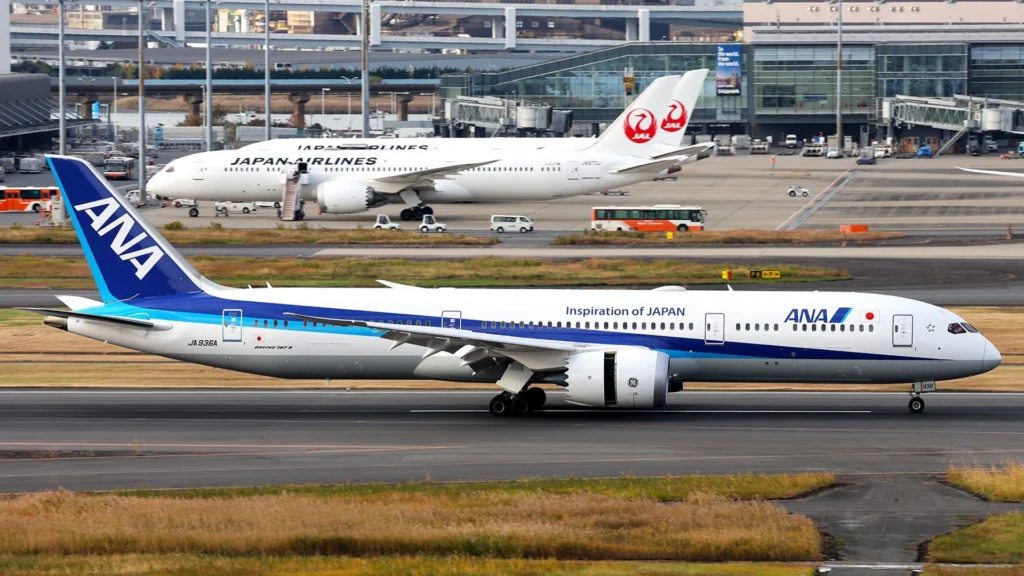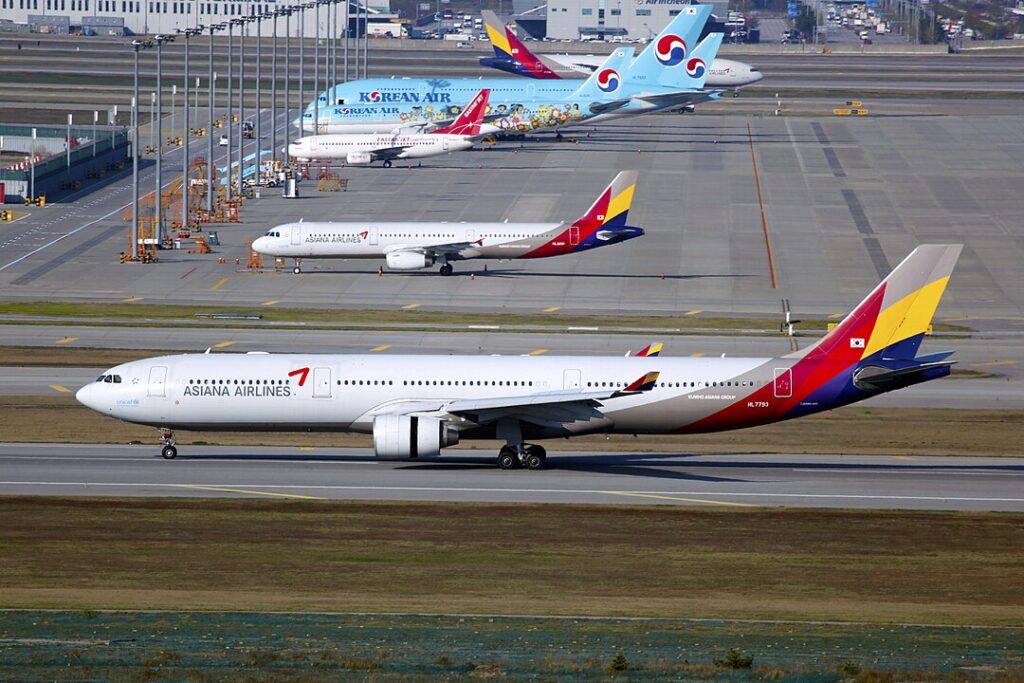
SEOUL- South Korean airlines have captured an overwhelming 92% of flight capacity between South Korea and Japan, according to December 2024 data from Cirium.
This dominance spans across the 1.3 million scheduled seats connecting these neighboring countries, which represent each other’s largest aviation markets.
 Photo: Aero Icarus | Flickr
Photo: Aero Icarus | FlickrSouth Korean Airlines Japan Dominate
Japanese carriers control only 7% of seats, while Ethiopian Airlines (ET) operates the remaining 1% through its fifth-freedom flight between Incheon (ICN) and Tokyo Narita (NRT). The market features 16 airlines, including 10 from South Korea.
Korean Air (KE), Asiana Airlines (OZ), and Jeju Air (7C) lead in total seat capacity, pushing Japanese carriers like Peach Aviation (MM), All Nippon Airways (ANA), and Japan Airlines (JL) to lower rankings.
The pending merger between Korean Air and Asiana Airlines will reshape the market significantly. The combined entity will control 32% of the total seat capacity between the two countries, offering over 830,000 seats.
When including subsidiaries Jin Air, AIR BUSAN, and Air Seoul, the Korean Air group will command 60% of all seats.
South Korean Airlines maintains exclusive control over 46 of the 50 routes connecting the two countries. Competition exists only on major metropolitan routes: Gimpo-Haneda, Incheon-Haneda, Incheon-Narita, and Incheon-Kansai.
Even on these competitive routes, South Korean carriers maintain majority control, reaching up to 90% of capacity on the Incheon-Narita and Incheon-Kansai routes.
 Photo: By byeangel from Tsingtao, China – HL7793 | Asiana Airlines | Airbus A330-323 | ICN, CC BY-SA 2.0, https://commons.wikimedia.org/w/index.php?curid=40388039
Photo: By byeangel from Tsingtao, China – HL7793 | Asiana Airlines | Airbus A330-323 | ICN, CC BY-SA 2.0, https://commons.wikimedia.org/w/index.php?curid=40388039Asiana Korean Air Merger
The impending merger between Korean Air and Asiana Airlines will transform South Korea’s position as a top 10 global aviation market. This consolidation reduces domestic carriers from 10 to 7, concentrating market power among fewer operators in the international airline landscape.
Cirium’s December 2024 schedules reveal South Korean airlines currently control 70% of international seats, with foreign carriers operating the remaining 30%.
The merger will push Korean Air and Jin Air’s combined share to 49% of South Korea’s international seat capacity, according to aviation analyst Pang Yee Huat.
The merger extends beyond Korean Air and Asiana Airlines, incorporating Air Busan and Air Seoul into Jin Air. This restructuring aims to create stronger competitive entities within South Korea’s aviation sector.
Foreign carriers maintain a significant presence in South Korea’s aviation market, with 75 international airlines currently operating routes. VietJet Air, China Eastern Airlines, China Southern Airlines, Vietnam Airlines, and Air China lead foreign operations, each controlling 1-3% of seat capacity.
South Korea’s aviation authorities now seek to boost foreign airline participation to maintain market competition.
Stay tuned with us. Further, follow us on social media for the latest updates.
Join us on Telegram Group for the Latest Aviation Updates. Subsequently, follow us on Google News
Korean Air Likely Suspending A380 Flights to LAX and New York
The post South Korean Airlines Beats Japanese Carriers on Korea-Japan Routes appeared first on Aviation A2Z.
















